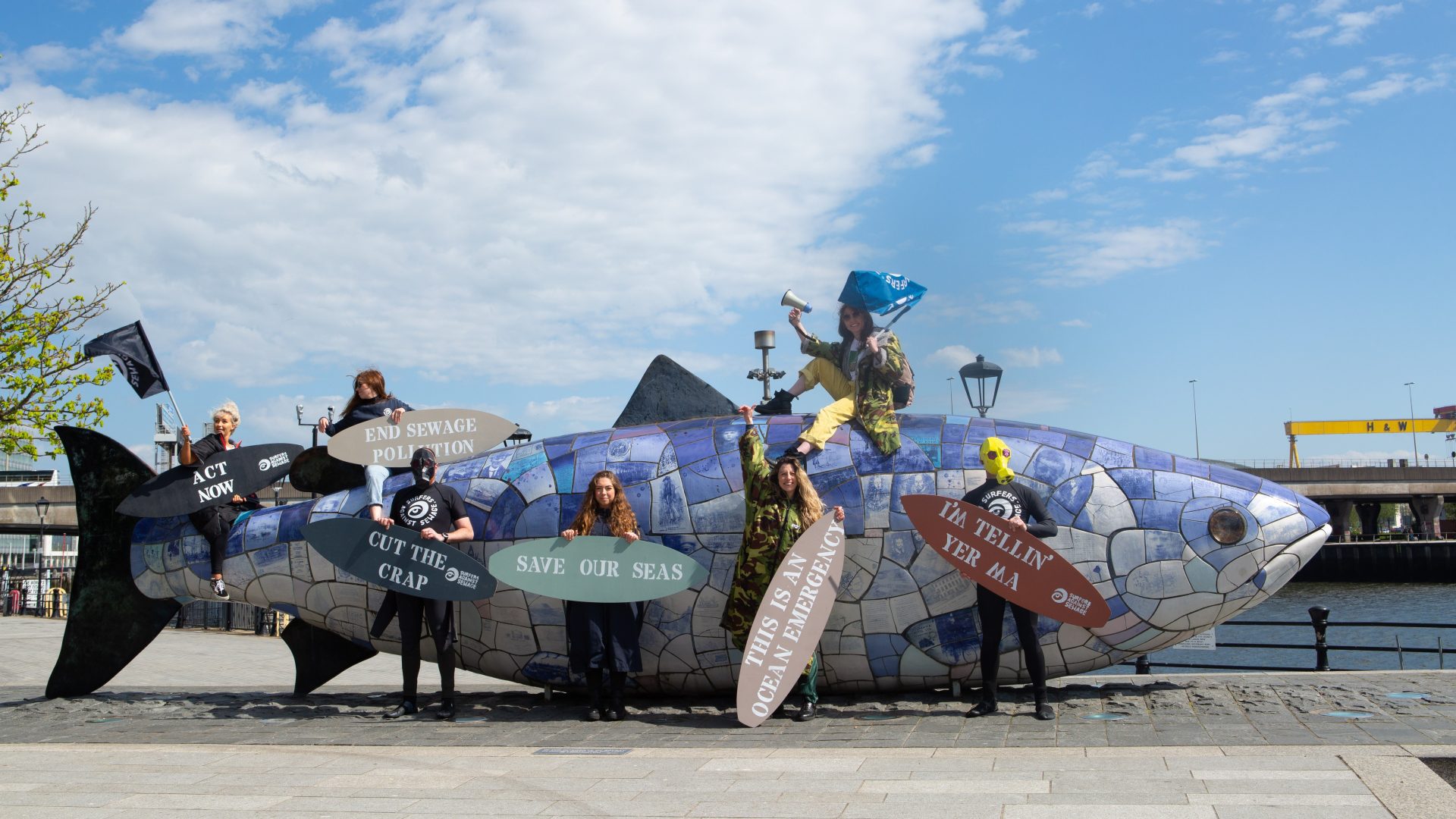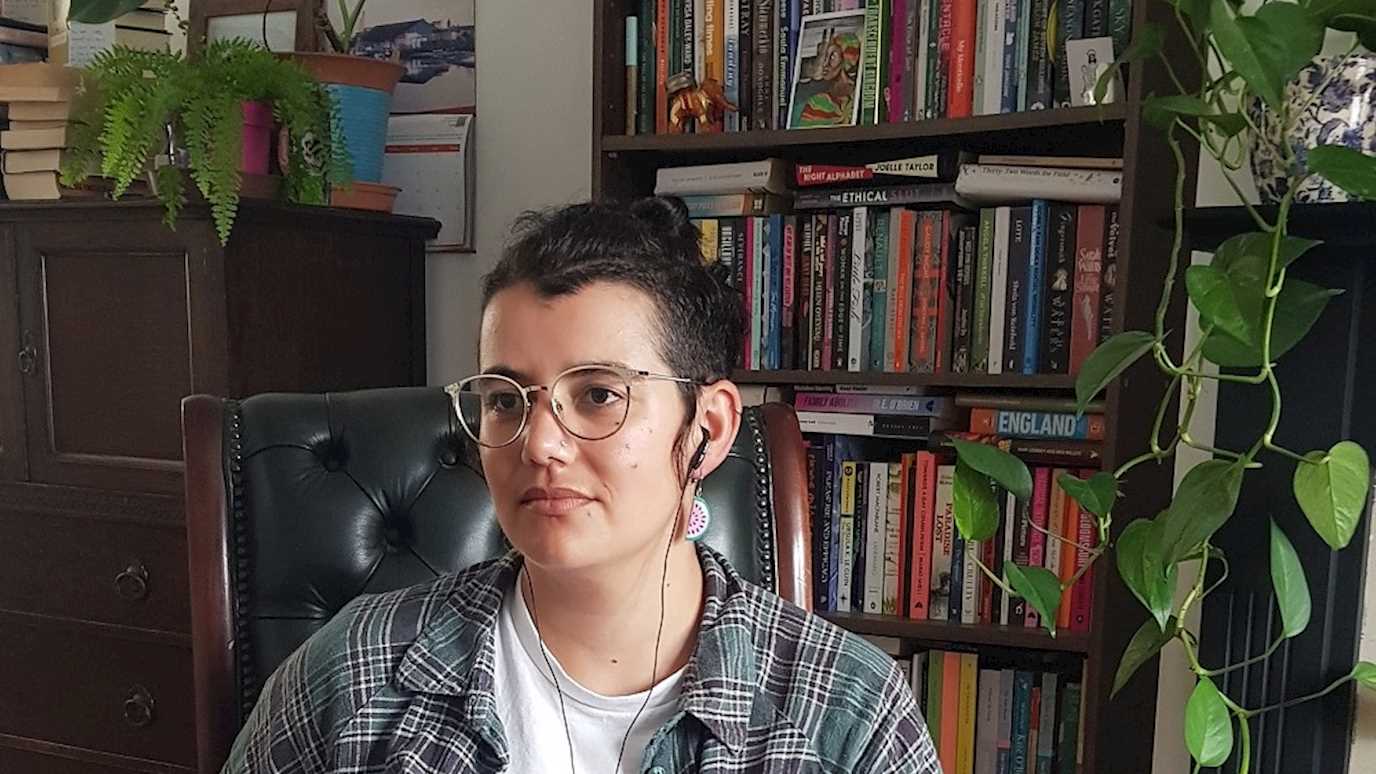Workshop report by Jeremy Iles

Surfers Against Sewage, Northern Ireland
The OHEM project has a UK-wide remit. When we came to consider Northern Ireland, we quickly realised we would need the guidance and support from colleagues on the ground in order to ensure we could take the unique context of Northern Ireland into account, and to reach people who were not known to us.
Based on our previous knowledge and contacts, we asked Miriam Turley (Research and Policy Officer) and Patricia Wallace (NI Manager) from Social Farms and Gardens and James Orr (CEO, Friends of the Earth Northern Ireland) to help us.
After discussion throughout 2023, we held an online workshop and invited a range of people who had been involved in the environmental movement in Northern Ireland to share their experiences. This workshop took place on 26th January 2024 with 20 or so participants, a colleague from the Linen Hall library in Belfast, and members of the OHEM team.
The edited transcript below gives an impression of the rich and varied discussions that took place during the workshop, and we have since received further suggestions from the participants as to who we might interview for the project.
Many observations were made about the impact of the Troubles on the early days of the movement which encompassed campaigns on an array of issues including green energy, mining, cycling and marine damage. The movement had to be careful to be neutral and “pacifist”, developing cordial relationships the authorities where it could, and working with humour and self-sacrifice. As one participant said: “...we can't avoid the elephant in the room in terms of the conflict and the post conflict situation. [But] there were ways in which various local environmental campaigns actually transcended the sectarian divide”.
Two examples given were the anti-lignite mining campaign in North Antrim, and opposition to the proposed extension to West Link, a major dual carriageway in Belfast. “That brought together people from both sides of the community on both sides of the road” (you will find references to academic work on these campaigns in the transcript).
A different example was cited which involved the Ulster Wildlife Trust taking the UK Government to court under European legislation for the damage done Strangford Lough by fishery trawling; European legislation proved to be a crucial element in campaigning which could effectively bypass government ministries and political deadlocks.
We also heard about the development and impact of the Good Friday Agreement on the movement. Views expressed described how, prior to the Agreement, the environmental movement may have felt hamstrung and unwilling to be seen as a "distraction" to the peace process, and since the Agreement it had understandably not wanted to “rock the boat” to the extent of endangering the peace.
The Agreement was also seen by some participants to have contributed to the institutionalisation of sectarianism. There is a view that the Agreement may have cemented differences of opinions along sectarian lines, which in turn has been used to create divisions and to weaken the impact of country-wide campaigns. On the other hand, local community action, grass-roots campaigns, and litigation promoted by individuals have all had a growing impact and are seen as the most effective forms of environmental engagement in the context of the frequent political stalemates at Stormont. One of the questions we asked was: “What was the impact of the Good Friday Agreement on the environmental movement in Northern Ireland?” This was turned upside down by one participant who asked, pertinently: “What was the impact of the environmental movement upon the Good Friday Agreement?”
This has given us much food for thought as we take the Oral History of the Environmental Movement project forward and we will be organising further discussions and witness seminars on various other aspects of the history of the movement across the UK. Our thanks to all involved.
Jeremy Iles is the External Liaison Officer for the OHEM project
Edited transcript of the workshop discussion, click here.
























